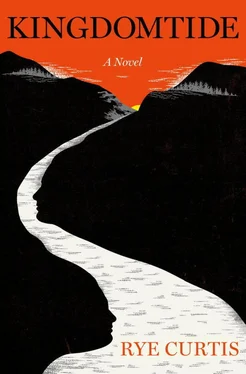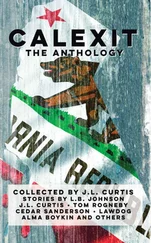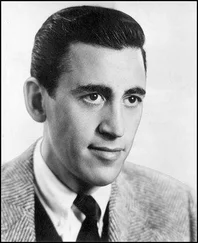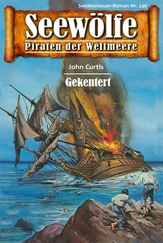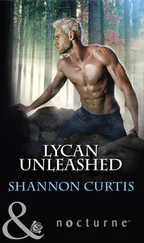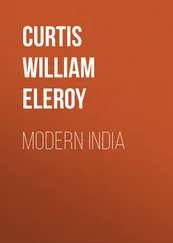I saw you too, I said. In the trees.
He said he knew that I had, and he said that he had waited out the storm and followed me down to the creek the next morning and had heard me praying. He said that it was then he had realized why I had left the little airplane. The fire I had seen in the valley was his.
So it’s kind of my fault you’re still out here, he said. I’d tried not to have a fire in the wide open like that at all in case a rescue effort was coming. But it’d rained and I was too cold in the morning. I thought I was going to get sick if I didn’t warm up.
I asked: Why do you not want anyone to know you are out here?
Nobody’s supposed to be out here, he said.
You could have left me and continued on up to the airplane, I said.
I felt responsible.
Your parents reared you right. You are a decent man.
Decency, he said. Yeah, that’ll be it.
I watched him drink by the light of the stove for a minute or two and then I asked him again the question that yet played on my mind: Why do you not want anyone to know you are out here?
I’d rather not talk anymore about it, he said.
Just fine, I said. But if you do not want to be found, what use could you have for a radio?
The man had another big swallow. It gets really lonely out here. Sometimes I think it’s not worth it. At least maybe if I had a radio I could maybe hear another voice sometime if I found a signal.
You never got your radio.
No. Got you, though.
I smiled and from what I could see uncovered of his face he smiled too. Emboldened by the drink I sat up and reached with both hands for his mask.
He pulled away and grabbed ahold of my wrists. What’re you doing?
I would like to see your face, I said.
That’s not a good idea.
Are you an outlaw?
The man only looked at me.
I am not going anywhere, I said, and you cannot wear that silly thing all of the time. That would be mighty uncomfortable and very likely unhealthy.
Still he held my wrists. You might not need any more of that booze, he said.
He sure might have been right about that. I was dizzy and warm. I said: Show me your face, young man.
He smiled again. I imagine he was amused by what a sotted old loon I was. He had a good smile and I will not easily forget it. He got up from the fire and gave me the bottle. He looked down at me for a moment. Then he reached up and pulled the mask off his head and dropped it to the ground.
At long last I was gazing upon the bare face of this young man. It was a very handsome countenance, not much more than twenty-eight years on this earth, as I would learn, but one of those faces that would seem young no matter what age it truly was. By the light of the pine knot burning in the critter’s skull it was apparent that it was a face used to terrible worry and concern.
He sat again and rubbed his eyes.
Now does that feel better? I said.
He admitted that it did.
You remind me of a handsome young man I knew when I was a young woman, I told him.
What was he like?
His name was Garland. He was handsome and he was decent like you and he thought fondly of me.
The man drank and gave me the bottle. It’s good I look like somebody else.
To my eye you do look a good deal like him. I swallowed from the bottle and this time I did not cough. Please tell me why you are out here, I said.
The man shook his head. I’m somebody nobody wants to be around.
That is nonsense.
He did not take his eyes from the fire in the stove. The wind billowed in the tarpaulin pinned to the thatched roof. You’ve seen how people are, he said. Nobody’s ever welcome. Nobody’d know what to do if they were.
He got up and took the bottle from me and went to his pallet. He had put together a pallet for me of pine needles and grass and bedsheets. I sat on the end of it and looked at him across the hut. We were not ten feet apart. He lay there for some time. His eyes were glistening.
I asked him for his name.
I can’t give it, he said.
What should I call you?
After some hesitation he said, Just go ahead and call me Garland if you want.
I suppose that will have to do, I said.
He turned on his side and put his palms together under his head. Then he rolled over the other way so his back was to me and told me to snuff out the lantern when I was ready to sleep.
I had hard work falling asleep. It had begun to rain and I lay on my pallet listening to it on the tarpaulin. The man was asleep on his back, wrapped up in those funny blankets. The stovelight flickered over his handsome face. He had such kind features. For me it was a face cobbled together from memories of handsome young men I had known, all of them long gone now, for men usually live shorter lives than women. In Hedley, not fifteen miles down the road from Clarendon, there is a Baptist church attended entirely by old widows.
I sat up on my pallet and wrapped myself in my blanket. As far as I can recall, this is the way it went: I climbed from my pallet as quietly as I could manage and knelt down by him. I leaned over him and put my face real close to his and sure enough I kissed that young man where he lay in his slumber. Lightly there on his bottom lip. I cannot put to reasonable language what it was that came over me, but I suspect it was of the drink and of my growing affection for him. I would imagine that many of the women from First Methodist will denounce me in each other’s company for much of what I have put down in this account. But when they are alone with their thoughts I hope they will know what I have become and see it on some horizon within themselves as well before it is too late.
The young man stirred but did not wake and I crawled back to my pallet and went straight to sleep. I did not dream that night out in the Bitterroot, but last night a hailstorm filled the streets with ice here in Brattleboro, Vermont, and I dreamt warm in my bed at River Bend Assisted Living. I dreamt that eons after civilization as we know it had come to a disappointing end there appeared a new race of people. I dreamt that they discovered our ruins and were confounded. I dreamt that they genetically reanimated us from fossilized prophylactics excavated from the gutters of our grandest metropolises, and put us in houses and cabins and huts and studied us to find out what it was that we were all endeavoring to do to one another. I dreamt that I had always been one of these test subjects and had only helped to confound them all the more.
They sat in a booth at a diner down the mountain. Jill had a soda and Lewis drank coffee and merlot and they ate hamburgers and watched from a window rain darken a leathery mendicant who waved roadside a sign of cardboard they could not read for the wording had bled. After they had eaten, Lewis had the gaptoothed waitress bring out a piece of apple pie with a candle afire in it and the waitress and a chinless cook sang. Lewis mumbled the song with them and refilled her mug from a thermos of merlot under the table. Jill blew out the candle.
The cook clapped and the waitress flattened an ink-stained hand to the girl’s back and leaned over her. Lewis figured she studied the girl’s scars. What birthday is it, baby doll?
Eighteen, Jill said.
What’s that, sweetie?
She’s eighteen, Lewis said.
Just a young and beautiful woman, the cook said, whistling. Ye gawd, ye just got yer whole life ahead of ye.
The waitress turned to Lewis. You must be one proud mama.
Lewis fixed on the woman a red eye. I’m not her mama.
She’s new, Ranger Lewis, said the cook.
All right, goddamn it.
The waitress blinked and the cook pulled her away behind a swinging door.
Читать дальше
Конец ознакомительного отрывка
Купить книгу
